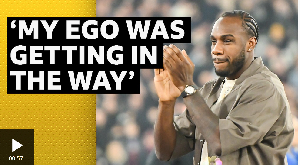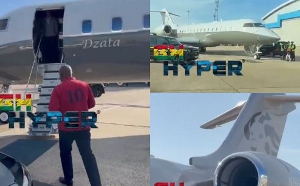A few years ago, if you spun the FM dial on your radio in Ghana you might have found the content of the single state-run station as monotonous as the hum of unused frequencies around it.
Today, with about 50 FM stations across the country and 12 in the capital Accra alone, the airwaves in Ghana - where Tony Blair, UK prime minister, arrived on Thursday night on his African tour - are now filled with a kaleidoscopic fusion of opinion and song.
Suddenly there are no taboos. Even issues such as homosexuality, rarely addressed with much openness on a continent where its existence is often officially reviled, gets a comprehensive public airing.
The consequences are sometimes as alarming as they are positive. Open discussion is helping to raise political consciousness, educate Ghanaians on the dangers of Aids, and open up a society held in line by the state for much of the past 4? decades since independence from Britain. But a worried kernel of Ghanaians, some of whom pushed the reforms that made independent broadcasting possible, believe things are going too far, too fast.
Stations such as Peace, Vibe, Choice, Joy and Gold FM compete for scarce advertising and sponsorship to finance their programmes. With listeners spoilt for choice, the temptation for sensationalism and scandal-mongering is strong. Meanwhile the regulatory body that is supposed to monitor programming is weak.
"One minute we were a one station nation and the next we have 50. We haven't had a chance to develop the skills to match," says a Ghanaian journalist.
The challenge facing the government of President John Kufuor is to bring broadcasters back in line, to introduce notions of responsibility without appearing to impinge on newfound freedoms.
Liberalisation of the airwaves followed Ghana's return to multi-party politics in the early 1990s. Jerry Rawlings, the maverick former president who first took power in a coup in 1979 and continued to dominate the political scene until last year, approved the first private station in 1996. Inadvertently, he was helping to engineer the demise of his own ruling party according to some journalists, who claim the proliferation of independent stations has been the most potent force in establishing democracy.
Thanks also to Ghana's expanding mobile phone network, aggressive reporting in the 2000 general elections helped to prevent electoral fraud and violence, ensuring these would not go unnoticed even in isolated, rural areas. Mr Kufuor was the first opposition candidate to win the presidency at the polls. "But some journalists think they actually got rid of the [Rawlings] government themselves," says an official from the victorious NPP party. "They forget Kufuor had anything to do with it. They ignore the fact that he tramped around every village in Ghana for two years." Critics say his government is now hostage to FM and treads cautiously with reforms for fear the radios will change their political colours.
The arrival of more tolerant and liberal government has also led to some potent radio moments. One of two flagship programmes on Choice FM offers a truth and reconciliation session on air, called "What Do You Know?" Victims of past political repression and violence are invited to talk about their experiences - sometimes face to face with the perpetrators.
"Sometimes it degenerates into serious confrontation. Verbal wars take place almost on a daily basis. There are no rules. As a presenter you need to be very tough, you sometimes need to restrain them with your hands," says Niyi Alabi, Choice FM's director of news.
From studios soundproofed with egg cartons, you can hear the World Bank representative answering questions about the consequences of structural adjustment. Spin the dial and a panel of schoolchildren is discussing the topic: "The quality of Made in Ghana goods is solely the result of government policy."
With so much airtime to fill, members of the public are able to phone in their own contributions. Slander is commonplace both of figures in authority and of the personal rivals of contributors. "I worry that people will begin to tire of what some are now calling verbal terrorism, and the good they [FM stations] seek to do will be lost. Having many stations could be as bad as just one if the public has lost confidence in what they hear," says a senior government official.
Britain could be of real assistance, the official suggests. By facilitating a long-term transfer of skills, Mr Blair could help combat the brain drain, which sees far more of Ghana's doctors, teachers and journalists heading to Britain than the other way round.
General News of Friday, 8 February 2002
Source: Financial Times












